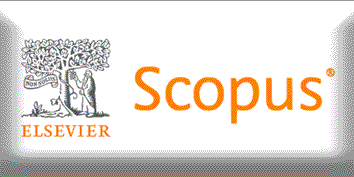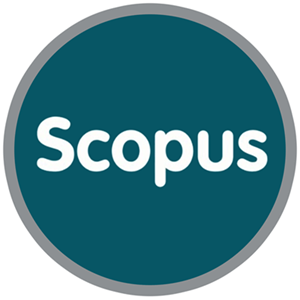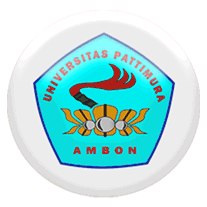ANALISIS REGRESI LOGISTIK ORDINAL FAKTOR-FAKTOR YANG MEMPENGARUHI STATUS BEASISWA MAHASISWA DI UNIVERSITAS MATARAM
Abstract
This study aims to analyze the factors that influence the status of student scholarships (get or not get a scholarship) using ordinal logistic regression analysis. The subjects involved were 100 students at Mataram University. The data used in this study are primary data collected using the Google Form online survey sheet. The research variable is the status of student scholarships as a response variable and entry path to state universities, the type of parent's occupation, the status of the Indonesia Smart Card (KIP) as its predictor variable. Each variable is divided into several categories on an ordinal scale, so that ordinal logistic regression is a solution in explaining the relationship between these variables. The results showed that the factors influencing the status of student scholarships were college entry channels and the type of parent's occupation. The relationship of these three variables is given by one logit model.
Downloads
References
I. Sayekti, “Pengujian Model Jaringan Syaraf Tiruan untuk Kualifikasi Calon Mahasiswa Baru Program Bidik Misi,†JTET (Jurnal Tek. Elektro Ter., vol. 2, no. 1, pp. 55–60, April 2013.
A. Musthafa, H. Suyono, and M. Sarosa, “Perbandingan Kinerja Algoritma C . 45 dan AHP-TOPSIS sebagai Pendukung Keputusan Proses Seleksi Penerima Beasiswa,†J. EECCIS, vol. 9, no. 2, pp. 109–114, Desember 2015.
M. A. Rahman, “Algoritma C45 untuk Menentukan Mahasiswa Penerima Beasiswa (Studi Kasus : PPS IAIN Raden Intan Bandar Lampung),†J. Teknol. Inf. Magister Darmajaya, vol. 1, no. 02, pp. 118–128, Oktober 2015.
B. Arifin, Sulistyarini, and H. Syahrudin, “Penggunaan Beasiswa Bidik Misi pada Mahasiswa FKIP UNTAN,†J. Pendidik. dan Pembelajaran Khatulistiwa, vol. 2, no. 12, Desember 2013.
A. A. Rohman and S. U. M. Widjaja, “Analisis Perilaku Konsumtif dan Perilaku Menabung Mahasiswa Penerima Beasiswa Bidikmisi di Jurusan Ekonomi Pembangunan Fakultas Ekonomi Universitas Negeri Malang Angkatan 2014,†J. Pendidik. Ekon., vol. 11, no. 2, pp. 107–117, Oktober 2018.
D. Handayani, Gustati, and D. M. Rissi, “Analisis Prestasi Akademik Mahasiswa Jurusan Akuntansi Politeknik Negeri Padang Berdasarkan Jalur Masuk,†J. Politek. Caltex Riau, vol. 12, no. 2, pp. 105–114, November 2019.
S. Imaslihkah, M. Ratna, and V. Ratnasari, “Analisis regresi logistik ordinal terhadap faktor-faktor yang mempengaruhi predikat kelulusan mahasiswa S1 di ITS Surabaya,†J. Sains dan Seni Pomits ISSN 2337-3520 (2301-928X Print), vol. 2, no. 2, pp. 177–182, Agustus 2013.
B. R. A. Febrilia, S. Rahayu, and B. D. Korida, “Ordinal Logistic Regression Analysis of Factors Affecting the Length of Student Study,†J. Mat. “MANTIK,†vol. 5, no. 1, pp. 28–34, Mei 2019.
E. M. Sahetapy, Y. A. Lesnussa, and V. Y. I. Ilwaru, “Analisis Tingkat Pengetahuan Remaja Tentang Perilaku Merokok di Kota Denpasar,†BAREKENG J. Ilmu Mat. dan Terap., vol. 1, no. 1, pp. 73–83, Maret 2015.
M. W. Talakua, A. Ratuanak, and V. Y. I. Ilwaru, “Analisis regresi logistik ordinal terhadap faktor-faktor yang mempengaruhi waktu kelulusan mahasiswa S1 di FMIPA Unpatti Ambon tahun 2016 dan 2017,†BAREKENG J. Ilmu Mat. dan Terap., vol. 13, no. 1, pp. 033–038, Maret 2019.
M. Nusrang, R. Bakri, A. S. Ahmad, and Asfar, “Analisis Regresi Logistik Ordinal Terhadap Faktor-Faktor yang Mempengaruhi Predikat Kelulusan Mahasiswa S1 Universitas Negeri Makasar,†in Prosiding Seminar Nasional Lembaga Penelitian UNM, 2017, vol. 2, no. 1, pp. 655–661.
A. Z. Wattimena, M. W. Talakua, and V. Temartenan, “Pemodelan Tingkat Kepuasaan Masyarakat Terhadap Proses Pelayanan Pembuatan Surat Izin Mengemudi di Satlantas Polres Ambon Menggunakan Regresi Logistik Ordinal,†BAREKENG J. Ilmu Mat. dan Terap., vol. 11, no. 2, pp. 85–94, Desember 2017.
T. Pentury, S. N. Aulele, and R. Wattimena, “Analisis Regresi Logistik Ordinal,†BAREKENG J. Ilmu Mat. dan Terap., vol. 10, no. 1, pp. 55–60, Maret 2016.
Authors who publish with this Journal agree to the following terms:
- Author retain copyright and grant the journal right of first publication with the work simultaneously licensed under a creative commons attribution license that allow others to share the work within an acknowledgement of the work’s authorship and initial publication of this journal.
- Authors are able to enter into separate, additional contractual arrangement for the non-exclusive distribution of the journal’s published version of the work (e.g. acknowledgement of its initial publication in this journal).
- Authors are permitted and encouraged to post their work online (e.g. in institutional repositories or on their websites) prior to and during the submission process, as it can lead to productive exchanges, as well as earlier and greater citation of published works.






1.gif)



